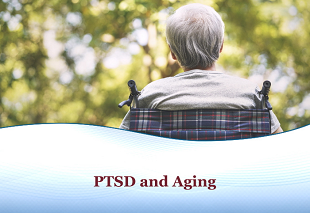PTSD and Aging
Continuing Education
This section brings together free in-depth Continuing Education resources for the Professional community concerned with trauma.
PTSD and Aging
- Date Created: 06/30/2020
- Time to Complete: 1 hour
- Credits: ANCC, APA, ASWB, ACCME, Other Orgs
- Skill Level: Intermediate
- Course Series: PTSD 101
 Author(s):
Author(s):
Description
Older adults with PTSD face unique challenges with co-occurring physical and mental health problems in addition to cognitive decline. Age-related factors can interact with posttraumatic stress symptoms and associated problems in ways that carry implications for research and clinical care.
This course reviews the incidence and prevalence of PTSD in older adults and describes the role of aging and cognitive impairment among older patients. The author presents recommendations and cautions for assessment and treatment in older adults with PTSD based primarily on data from Veteran samples. Potential next steps for research are also discussed.
Goals and Objectives
- Describe PTSD and aging
- Discuss the prevalence of trauma and PTSD in older adults
- Describe the longitudinal course of PTSD and other negative consequences of trauma
- Recommend assessment and treatment methods for older adults and potential next steps in research


























